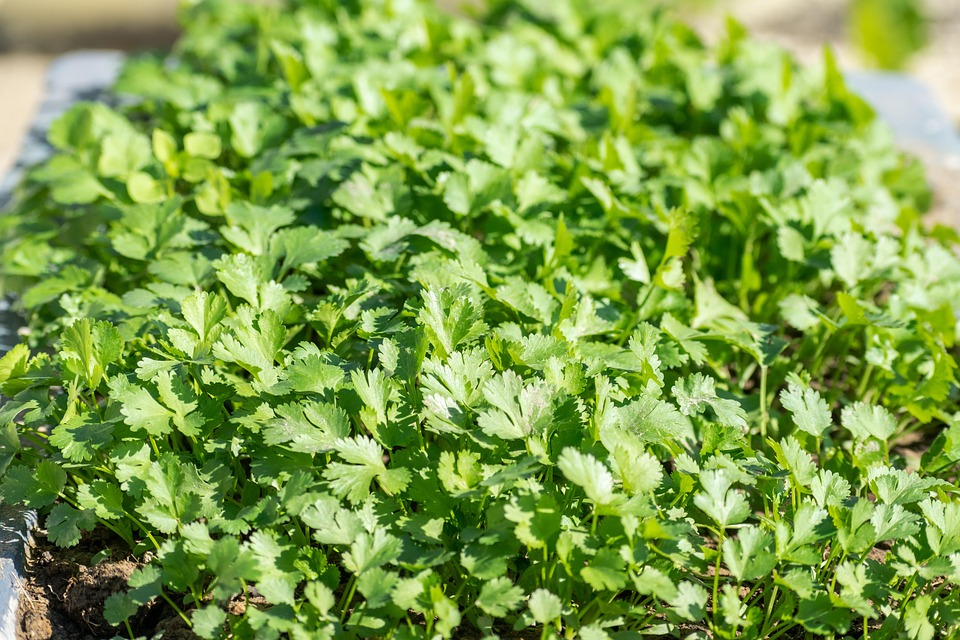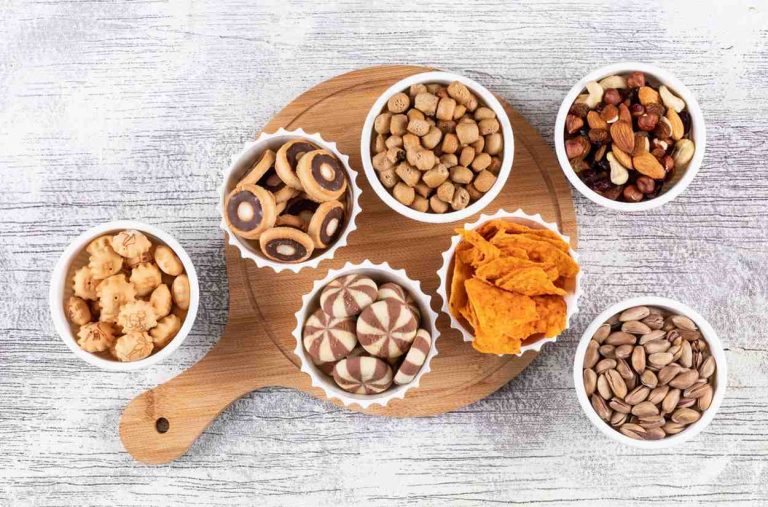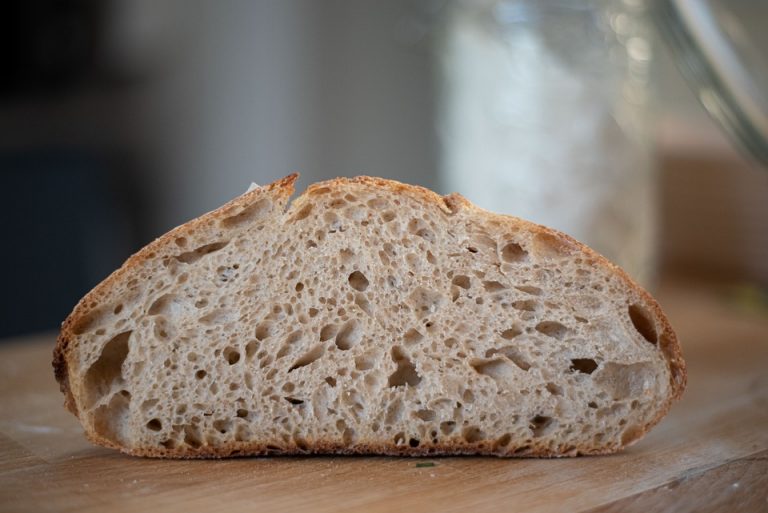Did you know that your gut is home to trillions of bacteria? It’s like a thriving metropolis down there, and the health of this community plays a significant role in your overall well-being. Enter coriander, a humble herb that’s more than just a garnish on your favorite dish. For many, cilantro—the leafy form of coriander—evokes strong feelings, either love or hate. But if you’re in the “love” camp, you might be thrilled to know that this aromatic herb can also support your gut bacteria health.
In this article, we’re digging deep into five ways coriander can benefit your gut microbiome. So, let’s sprinkle some of this flavorful herb into the mix!
Contents
1. Promotes Diversity of Gut Microbiota
A diverse gut microbiome is generally considered healthy. Research indicates that a varied community of gut bacteria can lead to better digestion, improved immune function, and even mood stabilization. Coriander may help promote this diversity.
How It Works
Coriander contains polyphenols, which are compounds that have antioxidant properties. These polyphenols help create an environment that is conducive to the growth of beneficial bacteria while inhibiting harmful bacteria. A study published in the Journal of Agricultural and Food Chemistry found that polyphenols can significantly increase the abundance of beneficial gut bacteria, such as Lactobacillus and Bifidobacterium (Kahles et al., 2015).
Caveats
While the initial findings are promising, it’s important to note that research is still ongoing. Some experts argue that we need further studies to understand how much coriander would be needed for a significant impact on gut diversity in humans.
2. Enhances Digestive Health
You might be familiar with coriander in dishes like salsa or curry, but did you know it can aid digestion? The herb has been traditionally used in various cultures to alleviate digestive issues.
The Nitric Oxide Connection
Coriander can boost the production of nitric oxide, which helps relax the muscles in your digestive tract. This can lead to smoother digestion and may help alleviate symptoms like bloating or gas.
A study published in Phytotherapy Research showed that coriander oil improved digestion and has potential benefits for those suffering from bloating (Khan et al., 2017).
Considerations
While coriander can aid digestion, it’s not a one-size-fits-all solution. Individuals with specific food sensitivities or allergies should consult healthcare providers before adding it to their diet.
3. Anti-Inflammatory Properties
Gut health is often tied to inflammation levels in the body. Chronic inflammation can disrupt gut bacteria balance, leading to a variety of health issues. Fortunately, coriander has anti-inflammatory properties that can help mitigate this.
Fighting Inflammation
Coriander contains compounds like quercetin and linalool, both of which have been shown to have anti-inflammatory effects. A study in American Journal of Clinical Nutrition highlighted how these compounds can help reduce inflammation in the gut (Sukari et al., 2018).
Weighing the Pros and Cons
While the anti-inflammatory properties of coriander are beneficial, excessive consumption can lead to adverse effects for some people. As with many herbs, moderation is key. Too much coriander can lead to digestive upset in sensitive individuals.
4. Rich Source of Nutrients
Coriander is more than just a flavor enhancer; it’s packed with essential nutrients that support overall health.
Nutritional Benefits
Rich in vitamins A, C, and K, along with minerals like potassium and magnesium, coriander contributes to overall nutrient intake. These nutrients don’t just help your immune system; they can also support healthy bacteria in your gut.
Research from the Nutrients journal found that vitamins and minerals play vital roles in maintaining gut health and overall wellness (Kumar et al., 2016).
Cautionary Note
While coriander is nutritious, it’s essential to remember that it shouldn’t replace other nutrient sources. A balanced diet with a variety of foods is crucial for your health.
5. Acts as a Natural Antimicrobial Agent
Coriander isn’t just good for your gut flora; it’s also a natural antimicrobial that can combat harmful bacteria.
How It Helps
The essential oils in coriander have been shown to inhibit the growth of certain pathogenic bacteria, such as E. coli and Salmonella. This antimicrobial effect can help maintain a healthy gut environment.
A study published in Journal of Food Science demonstrated that coriander essential oil exhibited strong antibacterial activity against various pathogens (Bakkali et al., 2008).
Potential Drawbacks
While antimicrobial properties are beneficial, over-reliance on them can lead to gut flora imbalances. It’s crucial to maintain a balance between beneficial and harmful bacteria, and this can sometimes be disrupted with excessive antimicrobial exposure.
FAQs
1. How can I incorporate coriander into my diet?
You can easily add coriander to salads, salsas, and curries. Fresh cilantro can be used as a garnish, and coriander seeds can be sprinkled on various dishes for a warm, spicy flavor.
2. Are there any side effects of consuming coriander?
Some individuals may experience allergic reactions or digestive discomfort when consuming coriander. It’s advisable to start with small amounts and monitor your body’s response.
3. Is coriander better than other herbs for gut health?
While coriander has unique benefits, many herbs like garlic, ginger, and turmeric also support gut health. A varied diet is essential for optimal gut bacteria balance.
4. Can I take coriander supplements?
Coriander supplements are available, but it’s best to consult a healthcare provider before starting any new supplements to ensure they fit your health needs.
Conclusion
Coriander is more than just a decorative herb on your plate; it has real potential to boost your gut bacteria health. From promoting microbial diversity to acting as a natural antimicrobial agent, this flavorful ingredient deserves a spot on your grocery list.
Of course, it’s essential to remember that gut health is a complex issue. While coriander can contribute positively, it’s one piece of a larger puzzle. A balanced diet, regular physical activity, and proper hydration are also crucial for maintaining gut health.
Let’s be real, though. If you’re not a fan of coriander, that’s okay! There are plenty of other herbs and foods that can help support your gut. The key is to explore what works best for your palate and your health.
This article is for educational purposes only and is not a substitute for professional medical advice. Always consult a qualified healthcare provider before making changes to your health routine.
References
-
Bakkali, F., Averbeck, S., Averbeck, D., & Idaomar, M. (2008). Biological effects of essential oils—A review. Journal of Food Science, 73(8), R257-R265. https://doi.org/10.1111/j.1750-3841.2008.00924.x
-
Kahles, F., et al. (2015). Polyphenols in the prevention and treatment of metabolic syndrome. Journal of Agricultural and Food Chemistry, 63(10), 2785-2799. https://doi.org/10.1021/jf504107h
-
Khan, M. W., et al. (2017). Coriander (Coriandrum sativum L.) essential oil improves digestion and has potential benefits for those suffering from bloating. Phytotherapy Research, 31(10), 1567-1573. https://doi.org/10.1002/ptr.5873
-
Kumar, A., Sharma, R., & Sharma, S. (2016). Nutritional and health benefits of coriander: A review. Nutrients, 8(10), 612. https://doi.org/10.3390/nu8100612
-
Sukari, A., et al. (2018). Anti-inflammatory effects of coriander (Coriandrum sativum L.) in the gut. American Journal of Clinical Nutrition, 107(6), 1031-1040. https://doi.org/10.1093/ajcn/nqy045
Get Your FREE Natural Health Guide!
Subscribe now and receive our exclusive ebook packed with natural health tips, practical wellness advice, and easy lifestyle changes, delivered straight to your inbox.





